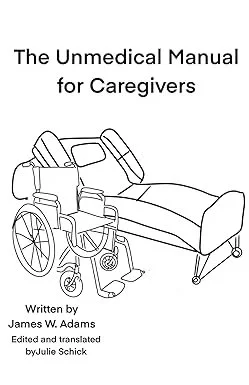You’re Not the Patient: Why “We” Language Can Hurt More Than Help
“We have to take our meds.”
“We need to finish our dinner.”
“We didn’t make it to the toilet.”
Sound familiar?
It’s something I used to catch myself doing early on — trying to sound supportive, unified, “with” the patient. But here’s the truth: you’re not the one going through it.
You’re the one standing beside the person going through it.
And that difference matters.
💬 “We” Didn’t Just Get Diagnosed
No matter how close you are — spouse, daughter, son, friend — you’re not the one living inside that body.
You may be doing the lifting, the wiping, the scheduling, the worrying — but they’re the one hurting, healing, declining, or struggling to adjust to a body that won’t cooperate.
Even if your life is fully wrapped around their care, remember: they didn’t choose this either.
🧠 “We” Need Compassion, Not Control
Using “we” can sound helpful. But sometimes it takes away dignity.
It can turn the person into a job or a task.
“We need to go to the bathroom.”
“We need to lose some weight.”
“We need to get our sugar under control.”
That’s not always compassion — sometimes, it’s control in disguise.
Instead:
Use their name.
Ask before assuming.
Offer, don’t demand.
And above all — preserve what independence and agency they still have.
🧍♀️ This Is About Them. But You Matter Too.
Being a caregiver doesn’t mean disappearing into someone else’s needs.
But it does mean showing up with dignity, not dominance.
And compassion doesn’t mean burnout.
You can be present without becoming invisible.
📘 Why I Wrote the Book
The Unmedical Manual for Caregivers isn’t about being perfect. It’s about surviving the day, staying human, and remembering that this is real life — not a Hallmark card or hospital brochure.
If you’ve ever:
Snapped and felt guilty
Felt like a bad person for being tired
Struggled to find the line between helping and controlling
…this book was written for you.
📖 Check it out here on Amazon
💬 And join the group: [FB group link] – where nobody expects sainthood.
Because you’re not the patient — but you matter too.
